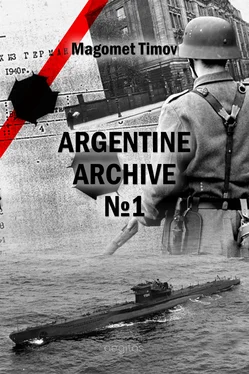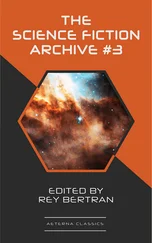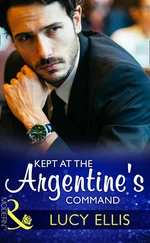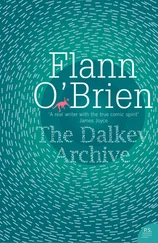Ivan sat on a sofa upholstered in striped fabric and took in his father's dressing down in silence. Things were going the way he thought they would, so he was not too upset. Dad was predictable, like the seasons changing, but he did not need to make any more waves. That could have caused unwanted complications. And so far…
In the meantime, dear Olga Arsenovna moved to intercede for her son. At forty-five, she kept almost all the charm of youth thanks to her complaisant character and natural intelligence. She had a grace worthy of a royal maid of honor. She pulled out from the corner cabinet the cherished tray with the silver chalice, a green glass decanter, and lemon slices. After pouring some 'Shustov', as she called the Armenian brandy, she put all this beauty in front of the bright-eyed Pyotr Alekseevich. The academician's beard changed vector toward the chalice. He stared furiously at his wife for a second. Then, suddenly limp, plopped down on his carved back chair and burst out laughing.
“Well, Olenka, respect! As usual! You will always find a 'valid argument' in a dispute…”
The wife humbly lowered her eyes and, sitting down on the sofa next to her son, whispered:
“How do you think the wife of an academician should react to such escapades? Just look for another ‘valid argument'.”
The professor shook his head, then swept the chalice away with his hand, which was worthy of a port bumpkin, and, with a grunt, knocked it away in one gulp.
“This is cognac, Petya. Armenian, as you like it,” Olga Arsenovna said reproachfully. The academician looked in bewilderment at the bottom of the empty chalice:
“Yes? That's bad luck, and I haven't tasted it in my heart. Well, let’s fix that.”
He filled the second cup himself, and it soon followed the first. Pyotr Alekseevich froze, savoring the bouquet of the fine drink, and then, softening, he cast a now interested glance at his son.
“Now tell us, poor son, why… Why did you have to play this game with the state? For example, do you yearn to be a translator at an embassy? That’s worse than being a desk jockey! Or am I missing something?”
Finally, after waiting for the opportunity to get a word in, Ivan explained:
“Father, you have always taught me dignity and patriotism concerning our motherland. As I understand it, they are giving me the opportunity here and now to show my patriotism in full measure.”
The father took a hard look at his son.
“I guess you don’t understand the structure that took you for a zugunder suddenly. Although, how could you? You didn’t live in the thirties. A car in the courtyard at midnight, the rumble of boots on the stairs, the dampness of the Lubyanka cells. You do not know what it’s like to live in constant fear, awaiting arrest, camera, a summary execution!”
Ivan had his father's blood in his veins: he also could not stand it when someone opposed him.
“And Uncle Misha, your own brother, did he also shoot and torture innocents?”
“What’s Mishka got to do with it?” This took professor aback. “He… He was doing a whole other thing.”
“Yeah, he caught spies on the front line and liquidated the bandit underground in Western Ukraine after the war. I remember very well. That’s where he laid down his head, by the way. And you spent the entire war at the university, sitting in the subway, hiding from the bombing. Do you think I forgot those years?”
“I had a reservation!” the professor jumped up, insulted. “Someone had to prepare for the future, too!”
“Aha.” Now Ivan suffered somewhat, as even his anxious mother put her hand on his. “Anthropologists, of course, are the backbone of modern troops! And a low bow to you for that!”
“What do you know, brat!” The venerable scientist’s voice flew into a soaring falsetto, glaring into the eyes of his son. He then turned and went limp. In Ivan’s eyes was something beyond all reason.
Ivan took his mother's hand from his and, grabbing his jacket from the back of a chair, rushed out of the room, slamming the door.
The professor exhaled and sat down. His wife went up to him, put her hands on his shoulders from behind, and kissed the incipient bald spot on the powerful back of his head.
“Oh, Petyunya, Petyunya. But our boy has grown, and you didn't notice during your lectures and seminars.”
“Yes,” was the only answer Pyotr Alekseevich could find. “And now, what I can do?”
“What can you do?” the wife laughed. “Live, dear, live on. Let's go to the kitchen. I'll make your favorite pancakes.”
June 14, 1950
17:55
Two kilometers northeast of the village of Nakhabino
The first building of the Higher Intelligence School of the USSR Ministry of State Security was a compact two-story affair. In intradepartmental correspondence, it was simply referred to as ‘the 101 stSchool’, and was nestled under the canopy of an enormous stand of pine trees. Even with aerial photography using the most modern equipment, it would be problematic to determine what was hidden under the continuous green carpet of the Khlebnikovsky Park forest.
An entire complex of buildings, several obstacle courses, its shooting range. All this was reliably hidden from prying eyes by a forest that stretched towards Balashikha for many kilometers. Several specially prepared security ‘secrets’ protected this top-secret installation from the overly curious.
Even though it was evening time and the classes had already ended, the meeting in the office of the head of the school, Major General Svetlov, continued. Extracurricular and operational. Besides Yuri Borisovich himself, there were also Lieutenant General Sudoplatov, Svetlov's old colleague and long-time friend, as well as Major Kotov himself.
A mountain of cigarette butts already decorated the crystal ashtray. The angled, small handwriting of the 'father of the scouts', as his cadets called the Major General among themselves, covered the table. Pieces of paper, some diagrams only comprehensible to those present, and several folders of personal files of actual cadets of the school.
Svetlov threw his tunic, decorated with many awards, over the back of a chair. The others also unbuttoned their tunics. Sweat had already appeared on Sudoplatov's forehead from the tense discussion, and judging by the flushed face of the Cat, he was having a hard time holding back his emotions. After rereading what he had written, Yuri Borisovich nodded in satisfaction:
“Well, colleagues, I think we’ve come to a compromise, haven't we?”
“I wouldn’t say that.” Sudoplatov shook his head. Kotov glanced at him but said nothing. Svetlov raised his eyebrows in surprise:
“What’s wrong with you now, my good Pavel Anatolyevich?”
Sudoplatov got up from the table, strode across the office and stopped at a large window overlooking the parade ground, along which a platoon of cadets from the last set was marching at random. They were recently students from purely civilian universities, who still did not understand the science of army marching, even when guided by the elderly sergeant who was decorated with the Order of the Red Banner.
Without looking away from this picture of local everyday life, he said:
“Yura, let's not fool each other. Comrade Beria has set before us an almost impossible task to find a group of people in a foreign and hostile country in the shortest possible time. Thanks to the 'efforts' of Comrade Abakumov, we have lost almost all of our residency there, and it stranded who remained without communication and the opportunity to work effectively. We have to create a new structure from scratch, which will deal with very sensitive matters far beyond the borders of our motherland. And that’s just the start. But…”
Читать дальше












